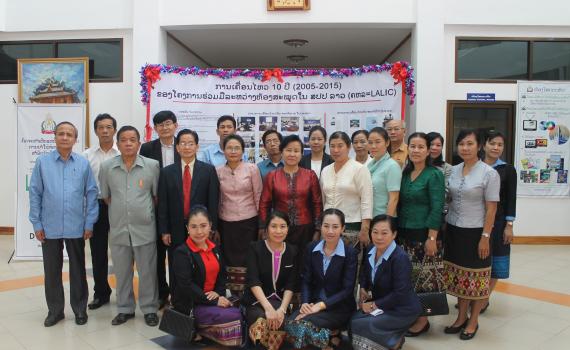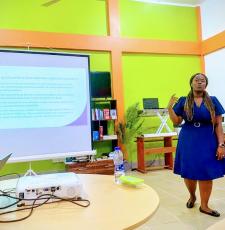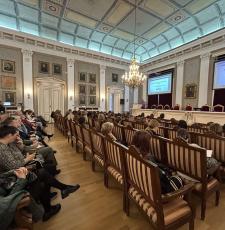
“Yesterday we had nothing, today we have the world of knowledge at our fingertips,” a professor of mathematics at the University of Laos told me after attending the first-ever e-resources training offered by the Laos Library and Information Consortium (LALIC).
That was in 2005 - and what a long way LALIC has come in 10 years.
LALIC celebrated it’s 10th anniversary at its annual meeting by giving member libraries the opportunity to present their achievements from the past 10 years.
When LALIC started out, with just 12 members, the situation for university libraries could be summed up in one word: ‘lack’.
There was an almost total lack of everything that libraries - and their users - needed to enter the digital world: the skills needed to use e-resources; funding for library development and ICT infrastructure; collaboration between libraries; information literacy skills.
The challenges seemed huge. But, as we can see from previous 10th anniversary blogs published over the past year about EIFL partner consortia in Senegal, Palestine, Ghana, Kenya and Zambia, where there is a will there is a way.
After 10 years, LALIC is a registered organization approved by the Lao Government, with 20 members, including universities libraries, research libraries, college and polytechnic libraries, public libraries and the National Library of Laos.
LALIC’s training has given hundreds of librarians, academics and students the skills and confidence to use digital technology; to conduct online research, and to use e-libraries and online databases to their full potential. LALIC vigorously promotes the e-resources its member universities have access to through the EIFL Licensing programme, and there is ongoing demand for e-resources training, especially from young researchers and students.
LALIC’S ENERGY TO GO FORWARD IS STRONG
 Some big challenges remain. In Laos, many universities and research institutes struggle with slow connectivity. Many do not have their own IP addresses - a stumbling block to licensing e-resources. There is an urgent need to upgrade librarians digital skills further, to improve services.
Some big challenges remain. In Laos, many universities and research institutes struggle with slow connectivity. Many do not have their own IP addresses - a stumbling block to licensing e-resources. There is an urgent need to upgrade librarians digital skills further, to improve services.
But the energy to go forward is strong. One important future project of consortium members is to develop a union catalogue, combining descriptions of the collections of all LALIC members, and to integrate the cataloguing data for e-resources provided by publishers into the union catalogue.
Other plans include implementation of a cooperative acquisitions process, aligning lending policies, providing more resources in the Lao language and monitoring usage of e-resources with the aim of improving management and marketing of e-resource collections. All these plans cry out for more advocacy for increased funding for libraries, which has become a fixture on the agenda.
We wish LALIC continued success in the years ahead.
Read more about the Laos Library and Information Consortium and EIFL’s work in Laos.
SHARE / PRINT









